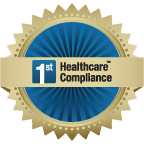‘Tis the season for Christmas concerts, basketball tournaments, and the spreading of love and good cheer… and germs!
While no one wants to give the gift of a winter illness, it’s easy for our children to exchange these unwanted presents all throughout this season. Children with allergies are especially at risk, because getting sick can interact with and sometimes exacerbate their allergy symptoms.
The common cold, COVID-19, the flu (influenza), norovirus (stomach flu), and more can all cause additional challenges for your children at this time of the year. Just being inside more can expose your child to more allergens. And weather conditions can also exacerbate your child’s allergic tendencies.
Tips for Prevention
As your children go about their everyday lives, enjoying the winter season, keep in mind these practical ways you can protect them from various conditions that can compromise their wellbeing:
- Encourage regular hand washing: Tell your child to wash their hands regularly, especially after using the restroom or before eating. This significantly reduces the spread of germs that can make your child sick.
- Teach proper respiratory hygiene: Show your child how to cover their nose and mouth when they cough or sneeze (we recommend coughing into the inside of their elbow rather than into their hand).
- Get vaccinated: Make sure your child is up-to-date with their vaccines to prevent severe illness and other complications.
- Stay away from sick individuals: Encourage your friends with sick kids to keep their kids home from school, church, and sports activities. Play dates can always be rescheduled, and their child will recover quicker if they rest, anyway.
- Be prepared for cold weather: Cold air can trigger asthma symptoms. Make sure your child has their rescue inhaler handy, takes their prescribed medications, and wears appropriate clothing to stay warm.
- Protect your child’s skin: Dry skin and eczema is made worse in winter because there is less humidity in the air. Avoid excessive exposure to hot water, use mild soaps, and keep skin moisturized.
- Stay hydrated: Dehydration affects everyone’s immune system, but it can also make your child more susceptible to allergies. Encourage your child to drink plenty of water, especially when they’re involved in sports and other activities.
- Get enough sleep. Rest recharges your body and helps keep your immune system strong.
- Share your child’s allergy plan with coaches and teachers: Make sure your child’s school and coaches know about your child’s conditions so they are aware of treatments they may require and any emergency procedures.
What to Do if Your Child with Allergies Gets Sick Anyway
No matter how hard you try, there’s still a good chance that your child will come down with some kind of winter illness. You can manage their allergy symptoms and their illness at the same time.
- Rest, rest, rest! Just like sleep helps prevent illness, rest gives your child’s body the space and time to focus on healing and recovery.
- Hydrate, hydrate, hydrate! Whether your child has the flu, the common cold, COVID-19, the stomach bug, or something else, it is important to help them stay hydrated. Keep pushing fluids throughout the day.
- Keep your child home: Yes, it is inconvenient, and yes, your child would rather be playing basketball or singing in the choir or hanging with friends, but staying home is best for their wellbeing and the wellbeing of your friends and family. Prevent the spread of illness and keep them home until their fever drops and their symptoms subside.
- Contact your Ashland ENT healthcare professional. It’s important to talk over any over-the-counter medications and conditions that your child may have so that you can be sure your child won’t have an adverse reaction, especially if they are already taking a prescription for their allergies. We can help you choose the best course of action to ensure your child has a swift and full recovery.
Your child’s allergies add a certain degree of complexity to cold and flu season, but it’s nothing that can’t be overcome with preparation, prevention, and appropriate allergy management. Contact us at Ashland ENT to put your child on the best path for pediatric allergy treatment, this time of year and all year round.



